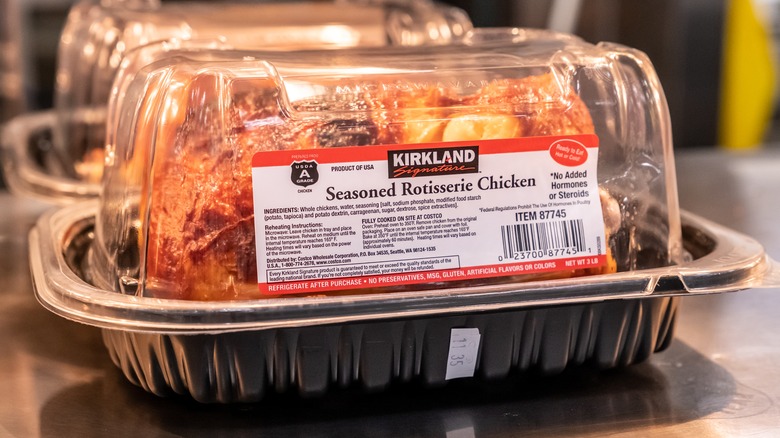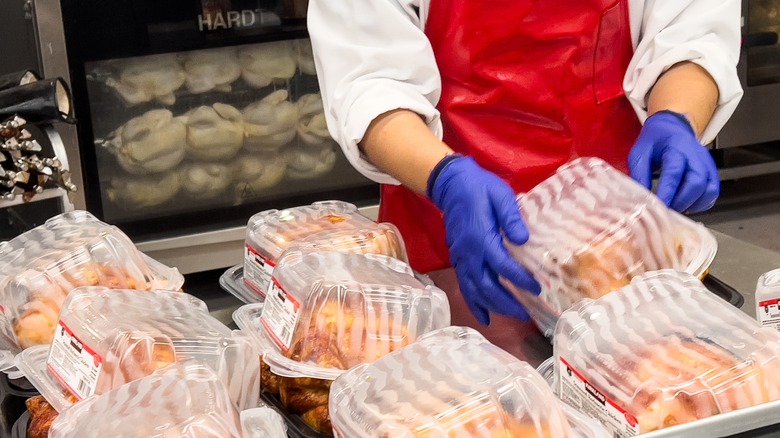Here's What The Time Stamp On Costco's Rotisserie Chicken Means
Even with all the undeniably satiating, cost-effective Costco food court items customers love, there's a product on the opposite side of the shop that will always deserve an honorary mention: The famed rotisserie chicken. A jaw-dropping low price of $4.99 gets members about three pounds of this delectable bird. Its affordable price alone is enough to reel the public into buying this roasted chicken, but the unfailing fresh taste is what helps solidify it as a reliable fan favorite.
The secret to how Costco delivers shoppers with consistently tender, juicy, well-seasoned chicken in each purchase lies in the product's time-stamped packaging. This number indicates when the chicken was put out onto the rack. Two hours from the labeled time, workers will remove the item from the shelf. Why? To maintain the commodity's solid reputation for being as high-quality as it is. It's ranked one of the best grocery store rotisserie chickens for a reason, after all.
What happens to unsold rotisserie chickens?
Don't fret, though, because these birds don't go unused. According to Costco itself, the company aims to upcycle food or donate it to those in need whenever possible. Unsold rotisserie chickens, in particular, are turned into deli items to reduce food waste. The exact products vary depending on the store's location, but they can be incorporated into anything from chicken noodle soup and enchiladas to pot pies and pizza.
Despite the chicken still being safe to consume even after the corporation's two-hour time limit has passed, this is a cautious course of action on behalf of Costco. The item was pulled from the rack to ensure customers are only receiving items of maximum freshness, especially considering that the U.S. Department of Agriculture suggests that chicken not be left at room temperature and should instead be refrigerated quickly. If not, bacteria can form and rapidly multiply. That's why it's better safe than sorry in the eyes of the big-box corporation, who recognizes when it's best to get the product into more suitable conditions and repurpose it before it's too late.

